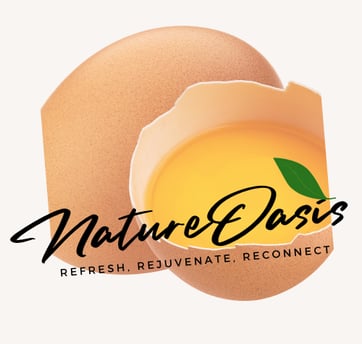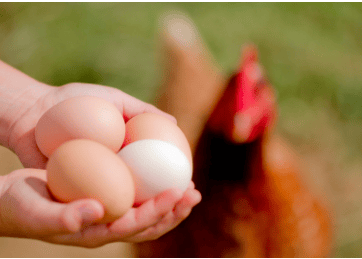free-range chicken eggs production
In the bustling world of egg production, there's a growing trend towards more sustainable and ethical practices, and at the forefront of this movement are free-range chicken eggs. These golden gems are not only prized for their superior taste but also for the way they're produced – with a focus on animal welfare, environmental stewardship, and nutritional excellence.
FREE-RANGE CHICKEN EGGS PRODUCTION
3/22/20242 min read


Title: "The Golden Standard: Exploring the World of Free-Range Chicken Eggs Production"
In the bustling world of egg production, there's a growing trend towards more sustainable and ethical practices, and at the forefront of this movement are free-range chicken eggs. These golden gems are not only prized for their superior taste but also for the way they're produced – with a focus on animal welfare, environmental stewardship, and nutritional excellence.
Understanding Free-Range Chicken Eggs:
Free-range eggs are the product of chickens that are allowed to roam freely outdoors, foraging on pasture and engaging in natural behaviors. Unlike conventional egg production, where chickens are confined to cages or overcrowded barns, free-range systems prioritize the well-being of the birds, giving them access to sunlight, fresh air, and space to express their natural instincts.
The Benefits of Free-Range Production:
One of the key benefits of free-range chicken eggs production is the improved welfare of the birds. In free-range systems, chickens have the freedom to engage in natural behaviors such as scratching, pecking, and dust bathing, which are essential for their physical and psychological health. This results in happier, healthier chickens and higher-quality eggs.
From a consumer standpoint, free-range eggs are prized for their superior taste and nutritional profile. Chickens raised on pasture have access to a diverse diet, including grasses, insects, and seeds, which enriches the flavor and nutritional content of their eggs. Free-range eggs are often higher in omega-3 fatty acids, vitamins A, D, and E, and antioxidants compared to conventional eggs, making them a healthier choice for consumers.
Environmental Sustainability:
Another important aspect of free-range chicken eggs production is its environmental sustainability. Pasture-based systems promote biodiversity, reduce reliance on synthetic inputs, and minimize environmental impact compared to intensive farming methods. By allowing chickens to forage on pasture, farmers can reduce the need for chemical fertilizers, pesticides, and herbicides, leading to healthier soils and ecosystems.
Supporting Local Agriculture:
Free-range egg production also benefits local communities and economies. Small-scale farmers who raise free-range chickens often operate on a smaller scale, allowing them to focus on quality rather than quantity. By supporting local producers, consumers can contribute to the vitality of rural communities, preserve agricultural traditions, and strengthen food security.
The Future of Free-Range Egg Production:
As consumer demand for ethically produced, high-quality food continues to grow, the future of free-range egg production looks promising. With a focus on animal welfare, environmental sustainability, and nutritional excellence, free-range chicken eggs are setting the standard for responsible agriculture.
In conclusion, free-range chicken eggs production represents a golden standard in the world of egg production. From the improved welfare of the birds to the superior taste and nutritional quality of the eggs, free-range systems offer numerous benefits for both producers and consumers. By choosing free-range eggs, consumers can support sustainable agriculture, promote animal welfare, and enjoy delicious, nutrient-rich eggs that are truly golden in every sense of the word.


